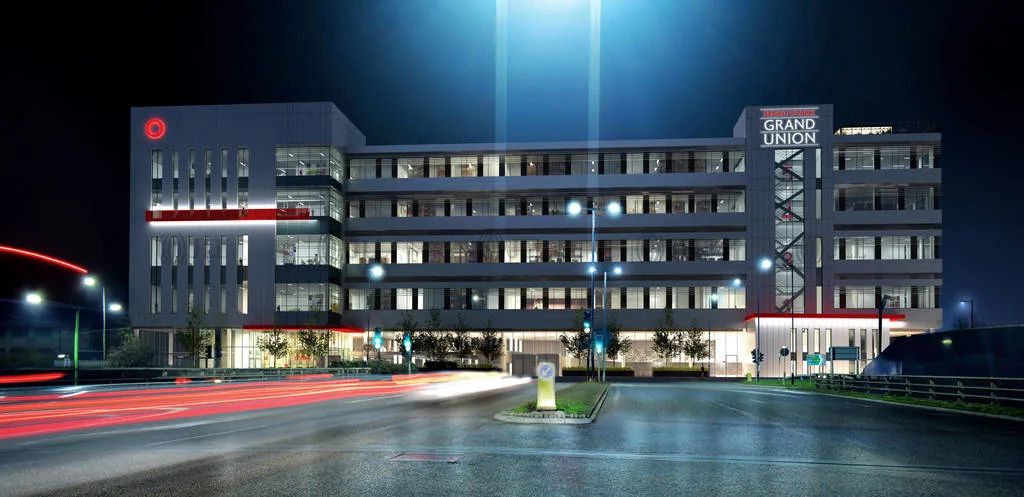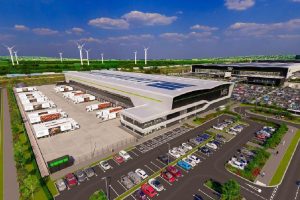Making it work
Getting London’s industrial and logistics policy right is a make or break issue according to those attending the JLL City Logistics Dinner just before Christmas. Liza Helps reports.

IN ESSENCE, it boils down to this: property is a fundamental part of the supply chain. If there is not the right warehousing capacity, in whatever form, in the right location, there is a very real risk of substandard and inefficient supply chains, that are invariably costly – both economically and environmentally.
And nowhere in the UK is this message more important to get across than in London.
That was the nub of the JLL City Logistics Dinner held on a cold winter’s night in Covent Garden just before Christmas.
How to make London work effectively, efficiently, and environmentally relies more than ever on integrating industry and logistics into the Capital’s built environment, but competing needs have stolen the limelight, side-lining the sector in importance, leading to pressure not only on the physical land availability but also on the powers that be to sort it out.
And there is concern that those in charge of policy and influencing governance and regulation don’t actually know enough about, or worse, have a political disregard for, logistics, its needs, and importance to the overall economy, to make these informed calls. That is not to say that institutions such as The Greater London Authority are not unaware of the issues and putting in place governance to assist the safeguarding of industrial space in the capital just that the interpretation of advice and policy can be overwhelmed especially if there is political gain to be won at a more local level.
As one diner said regarding the attitudes to industrial development in the capital: “[Logistics] is important but not as important as residential.”

While those concerns were voiced, so too was the desire to understand how to work within the present guidelines and attitudes facing the sector and look to change the dynamics in order to provide London with fast, efficient, sustainable logistics supporting consumers, businesses, and the overall economy going forward.
To set the scene there are a number of issues at present unique to London with regard to urban logistics: the most important is the fact that there is indeed very little space for logistics in the City and what space or land there is, is extremely expensive.
In the last 20 years 3,700 acres of industrial land has been lost to alternative uses such as residential, which can’t ever be replaced due to the fact that there is only a finite amount of land inside the M25.
In order to tackle this issue, the GLA London Plan looks to safeguard the amount of industrial space left in the capital advocating co-location and intensification as a solution, but many at the dinner, while applauding the case of safeguarding industrial space in the Capital, felt that this can be a blunt tool open to misinterpretation, particularly when trying to co-locate industrial with other uses.
Many people noted that they had heard of proposed schemes, in early stages, where developers were taking well thought out multi storey schemes such as V-Park Grand Union and Industria and in effect copying and pasting without due regard to the site in question in terms of its size, location and anticipated occupier demand in the area nor the practicality of the design for logistics use in order to secure planning.
One diner noted: “Intensification means more than just multistorey, which we of course very much believe in, but equally we are aware that it won’t work in every location and not for every single type of industrial occupier. So, it’s not a cookie cutter solution.”
In effect, multi-level intensification/co-location is not necessarily going to work in all circumstances so it should not be the default position for every site and occupier.
That is not to say that there are not the schemes and joint ventures already in play in London leading the vanguard as to how this might come about. One only has to look at multi level schemes such as Industria or V-Park Grand Union, etc but for many logistics users, these are still relatively untested.
On top of that, currently unique to London, but likely to be adopted by other UK conurbations, is the Ultra Low Emissions Zone (ULEZ) coupled with restrictions on HGV movements with the London Lorry Control Scheme which both look to minimise the environmental impact of traffic in the city – be it air or noise pollution.
Other regulations such as the minimum energy efficiency standard (MEES) aimed at improving the energy efficiency of the UK's older building stock, driving the UK towards net carbon zero add to the pressure on securing urban locations for logistics. More than 50% of London’s commercial stock, under proposed MEES regulation changes, will be unlawful to let from April 2027 having an EPC rating below ‘C’.
This is set against a backdrop of huge technological change not least the growth of online shopping accelerated by the pandemic and consumer expectations regarding faster delivery times for both goods and services. “It is a brave company that takes the risk of not offering those alternative solutions and faster delivery times as they risk being out-positioned by competitors.”
These issues put increased pressure on the development of logistics spaces in central urban locations.
All agreed that ultra urban logistics locations, have many benefits with goods and services being ultimately located closer to the end consumer be they individual or business. A central location invariably provides higher consumer densities allowing delivery of more goods or services per mile, optimising routing and reducing operational costs. In many cases these are carried out via electric scooters, cargo bikes and even on foot.
The problem is securing the space to develop. However, if that were not enough right now, the issues unique to London coupled with regulation and a general lack of knowledge of the needs of the logistics sector by policymakers and the public all add to make the financial viability of a scheme challenging to say the least. And right now, with the cost of money high and the overall macroeconomic outlook unsteady it is a brave developer pushing forward with a scheme.
{EMBED(1273965)}
That being said there are schemes coming through – as previously mentioned – there is Be First, Barking and Dagenham Council's regeneration arm’s 45-unit multi-level Industria scheme in Barking with industrial and logistics space ranging from 197-5,217 ft2, SEGRO’s V-park Grand Union scheme in Park Royal offering space ranging from 1,585 to 30,630 ft2 over multiple levels. In addition there is Bloom Development’s five unit 35,417 ft2 Bloom Brixton scheme which offers accommodation across ground and first floors with goods lift access and two separate yards. Proposals from NEAT Developments will see the construction of a 12 acre co-locational site in Waltham Forest consisting of innovative stacked warehousing as well as 1,800 new homes. British Land is bringing forward a range of multi-level ultra-urban logistics sites including a four storey 140,000 ft2 scheme on Mandela way in Southwark, a 121,000 ft2 low carbon logistics hub in Paddington central on the former cross rail works site and a 455,000 ft2 multi storey scheme in Enfield.
It is estimated there are plans and proposals for in excess of 50 multi storey scheme in the capital and while that seems a lot – demand for space the capital far exceeds supply. Vacancy rates in London are well below the national average.
All concurred that without more ultra-urban logistics development, London risks falling behind other major financial centres in Europe and the rest of the world, which will be disastrous for the UK economy as a whole.
What is to be done?
A variety of solutions were brought up almost all requiring a certain level of collaboration across both private and public bodies from planning, design, and incentives.
Possibly the most discussed issue requiring more collaboration was planning. This was most pertinent to residentially led co-location schemes, where there was a feeling that the industrial section is not as protected due to poor design.
{EMBED(1273964)}
There were thoughts regarding looking at the availability of industrial sites across the whole of London and identifying the best types of logistics development for each whether that be single-storey colocation, multi-storey, intensification, micro hubs within car parking spaces etc so that the most appropriate use was made of each site and opportunities for clustering etc could be planned forward being more proactive rather than reactive with a more free for all approach. “Proper zoning and land use planning can create clusters, optimising space utilisation and enhancing economic activity. It can also avoid conflict with other uses.”
This of course would mean a more co-ordinated approach across local authority boundaries and collaboration on a wider scale.
“Dealing with planning in London is a detailed issue requiring almost surgical precision, much pre-planning forethought and intricate collaboration when compared to the relative ease of developing a big shed in a location such as Northampton.”
Another point raised looked more closely at what was, or what was not, working in other major European cities where financial incentives were jump starting innovative design-led solutions to urban logistics with the municipalities of both Munich and Hamburg building multi level industrial buildings to encourage the growth of the SME market and the Paris mayor offering incentives to occupiers utilising greener modes for transport rather than leaving it all to market forces.




